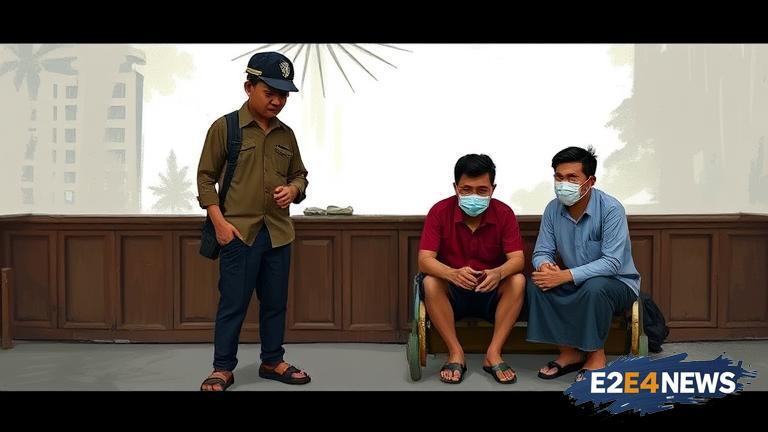A court in Indonesia has sentenced a man to 1.5 years in prison for stealing a pair of sandals, a ruling that has sparked widespread criticism and debate over corruption in the country’s justice system. The case has highlighted the inconsistent and often lenient sentences handed down to corrupt officials and wealthy individuals, while poorer citizens receive harsher punishments for minor crimes. The sandals thief, who has not been named, was found guilty of stealing a pair of sandals worth approximately $3. The sentence has been widely condemned, with many arguing that it is excessive and disproportionate to the crime. The case has also raised questions about the effectiveness of Indonesia’s justice system, which has long been plagued by corruption and bias. Many have pointed out that the sentence is harsher than those received by corrupt officials and businessmen who have been found guilty of embezzling millions of dollars. The debate has sparked a wider conversation about the need for reform in Indonesia’s justice system, with many calling for greater transparency and accountability. The country’s corruption eradication commission has also weighed in on the issue, stating that the sentence is a clear example of the inconsistent and often unfair application of the law. The commission has called for a review of the case and for greater efforts to be made to tackle corruption and ensure that the justice system is fair and impartial. The sandals thief’s sentence has also been compared to other high-profile cases in Indonesia, where corrupt officials and businessmen have received lenient sentences or been acquitted despite overwhelming evidence of their guilt. The case has highlighted the deep-seated corruption and bias that exists within Indonesia’s justice system, and has sparked widespread outrage and frustration among citizens. Many have taken to social media to express their anger and disappointment, with some calling for the resignation of the judge who handed down the sentence. The Indonesian government has also faced criticism for its handling of the case, with some arguing that it has failed to take adequate action to address corruption and ensure that the justice system is fair and impartial. The case has also raised concerns about the impact of corruption on the country’s economy and society, with many arguing that it is a major obstacle to development and progress. The sandals thief’s sentence has been widely reported in the media, both domestically and internationally, and has sparked a global conversation about corruption and justice. The case has also highlighted the need for greater transparency and accountability in Indonesia’s justice system, and has sparked calls for reform and greater efforts to tackle corruption. The Indonesian government has faced pressure to take action to address the issue, and has announced plans to review the case and to take steps to improve the justice system. However, many remain skeptical about the government’s commitment to reform, and have called for greater action to be taken to tackle corruption and ensure that the justice system is fair and impartial. The case has also sparked a wider conversation about the role of the justice system in society, and the need for it to be fair, impartial, and effective. The sandals thief’s sentence has been widely condemned, and has sparked a national conversation about corruption and justice in Indonesia. The case has highlighted the need for greater transparency and accountability, and has sparked calls for reform and greater efforts to tackle corruption. The Indonesian government has faced pressure to take action to address the issue, and has announced plans to review the case and to take steps to improve the justice system.





